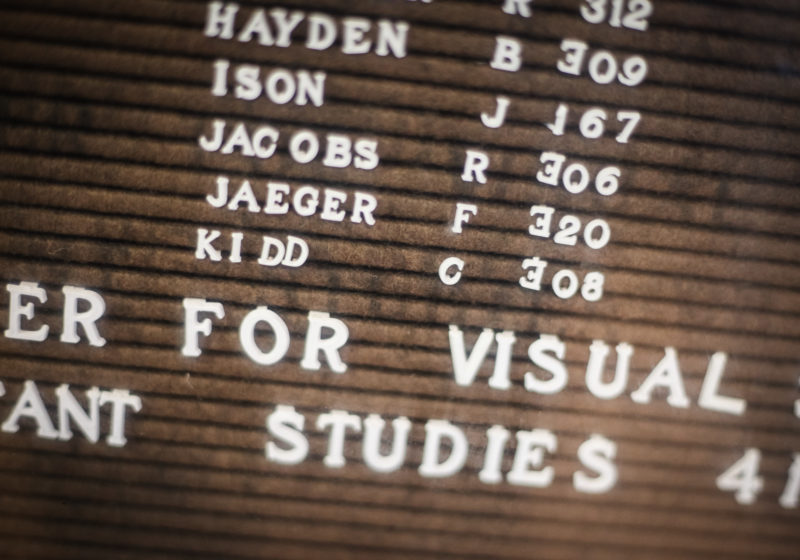Many professors are worried prospective students and faculty will be put off by UR’s handling of the sexual harassment claims against their colleague T. Florian Jaeger.
“It affects many of us, if not most of us,” said Harry Reis, a psychology professor. “It affects the outside perception of the University as well. It affects how alumni feel about the institution. It affects students who might not apply to come here. It affects our ability to recruit the best faculty.”
The concerns arise as the University begins its fall recruitment efforts, which include Research Rochester days, UR’s Multicultural Visitation Program, and overnight opportunities for high school seniors. These programs are in addition to the over 50 listed days when prospective students can attend information sessions, take campus tours, and get admissions interviews.
Professors are not alone in their concern that undergraduate recruitment could be affected.
In an email sent to members of the Meridian Society obtained by the Campus Times, Associate Director of Campus Programs Andre McKenzie shared a message from Dean of Admissions Jonathan Burdick encouraging tour guides to respond to questions by acknowledging the issue of sexual harassment but also pointing out that the Jaeger case is directed at “one professor among UR’s thousands of professors.”
Later on in his message, Burdick said that though the timing of the situation is not ideal, “a serious University community like ours has to embrace controversy and protest as mechanisms for growth.”
English Professor Jeffrey Tucker held a similar opinion to Burdick’s, highlighting to the Campus Times over the phone the importance of activism.
“I think students’ response, particularly in regards to the protest that happened last week, was important,” Tucker said. “Something I’ve spoken about before is the importance of student activism to transform […] a campus. There’s a long history of that in our country, and even here at the University of Rochester. I’m someone who believes that when students see something that needs to be changed or have demands about how the University does its business, it’s important for them to speak out, because they have the potential to make positive changes happen. I think that’s valuable.”
Many professors are also concerned the actions outlined in the federal complaint against UR — the publication of which by Mother Jones revealed the case against Jaeger — will alienate students from their instructors.
“I think another negative thing that could potentially come out of this is — we are afraid that it will create a barrier between the students and faculty, that somehow students think that what has been talked about in that complaint that the environment in BCS is sort of typical or somehow common,” Sina Ghaemmaghami, a biology professor, said. “We’re afraid that that will just keep students from engaging with faculty and seeking their mentorships and working in labs.”
One Brain and Cognitive Sciences professor, who asked to remain anonymous because of his proximity to the parties involved in the complaint, indicated that such a divide is already being seen within the department.
“The department is clearly suffering, in part from the lack of communication between faculty and students which left many students feeling confused and even betrayed,” the professor said in response to an inquiry from the Campus Times.
They added that the department is working on and committed to repairing the trust and communication between faculty and students.
Professors said new policies are needed to help mend the gap.
“The University needs to look at its policies and develop a policy that has more support in the university community,” Reis said. “We need a policy that’s fair to people who have been accused as well as victims, but we also need a policy that engenders a real feeling of confidence that people will be treated fairly and honestly and that students at the University don’t need to worry about the potential of being harassed. And that applies to both male and female students.”
Despite the “Jaeger Effect,” many professors feel that the controversy has created the opportunity for faculty to go above and beyond in their work at UR.
“If there’s a silver lining to this whole thing, [it] is that it has really created a lot of conversation,” Ghaemmaghami said. “People are talking about these issues […] in the hallway. And I think a lot of us are really committed to making sure we go the extra mile and try and build a positive rapport with the students now, and make make sure we provide a positive environment — and not that we didn’t before, but take our roles — our role — as mentors and educators extra-seriously now.”






